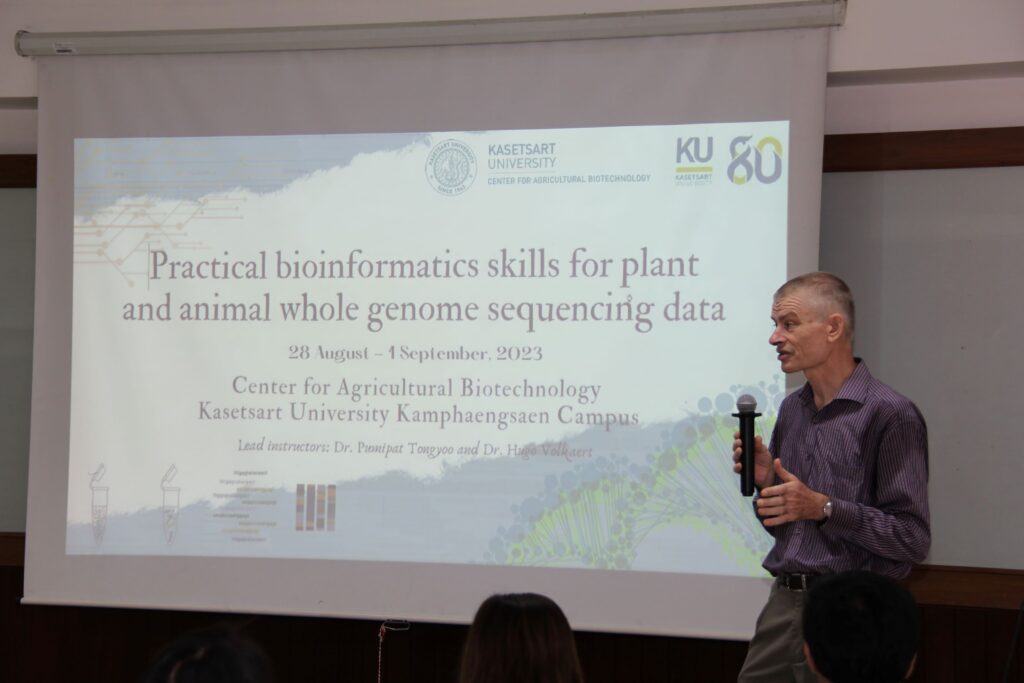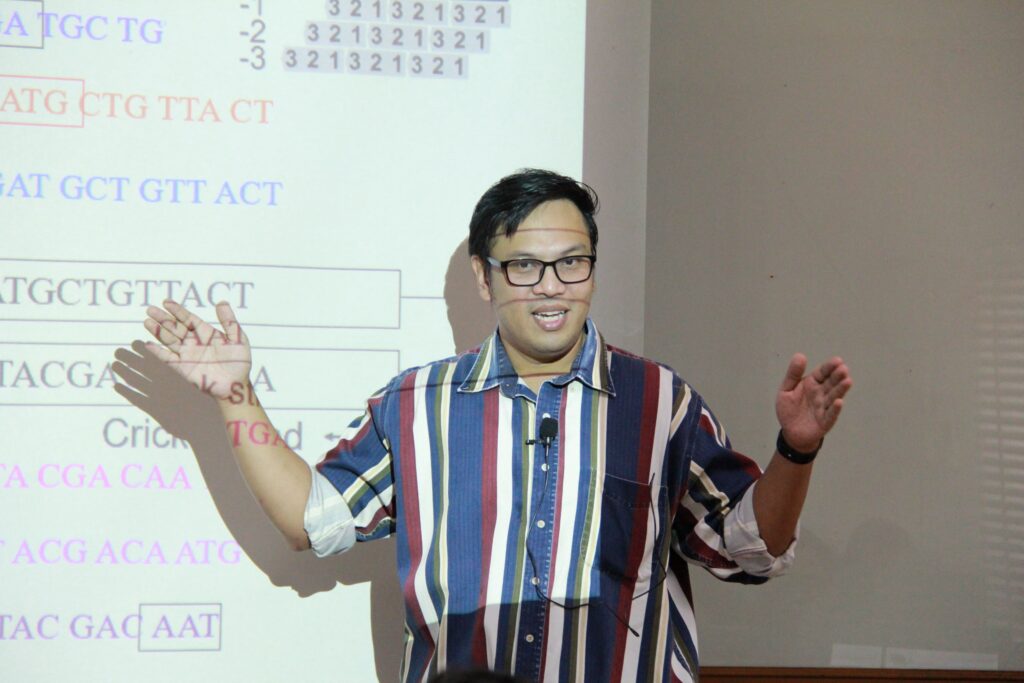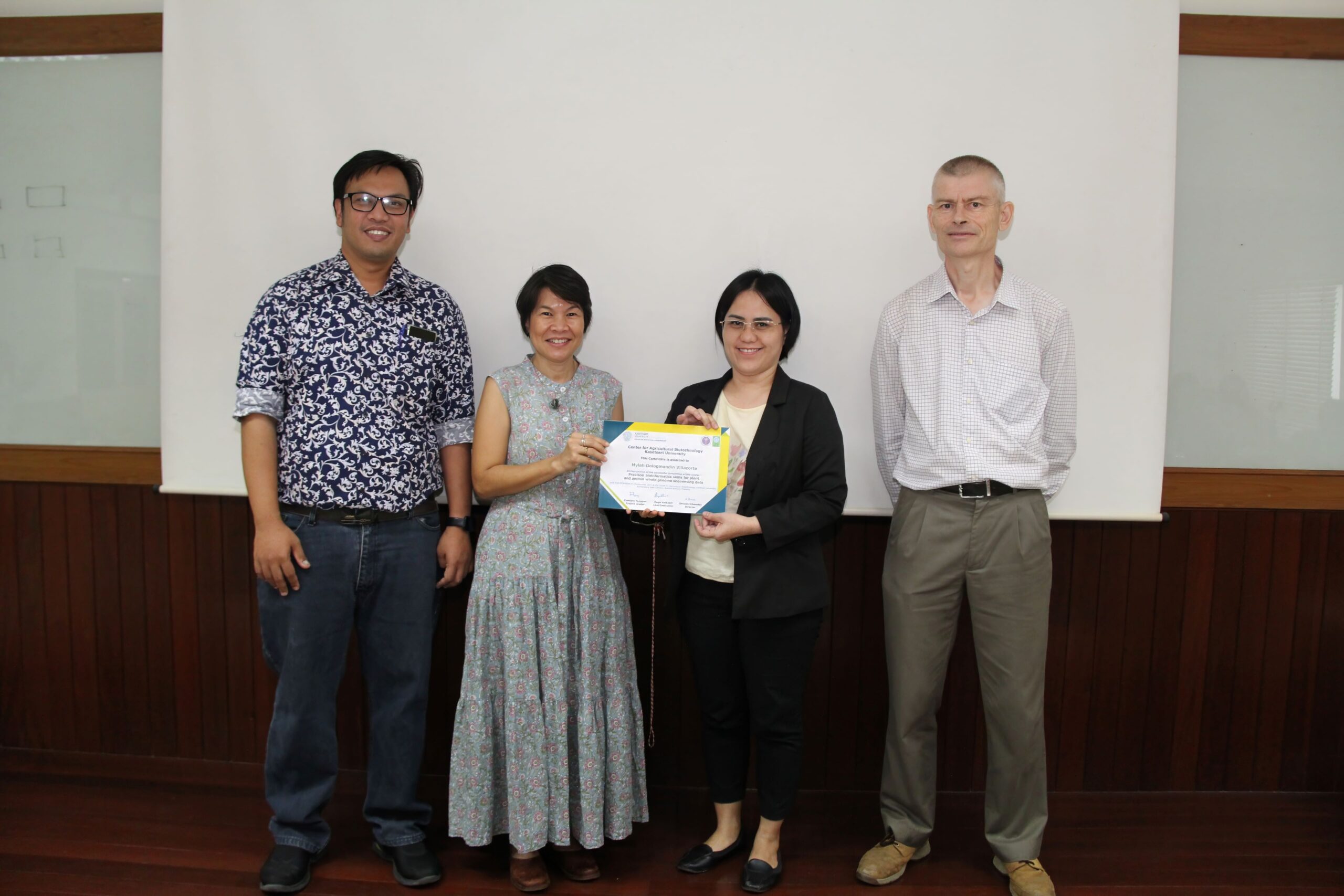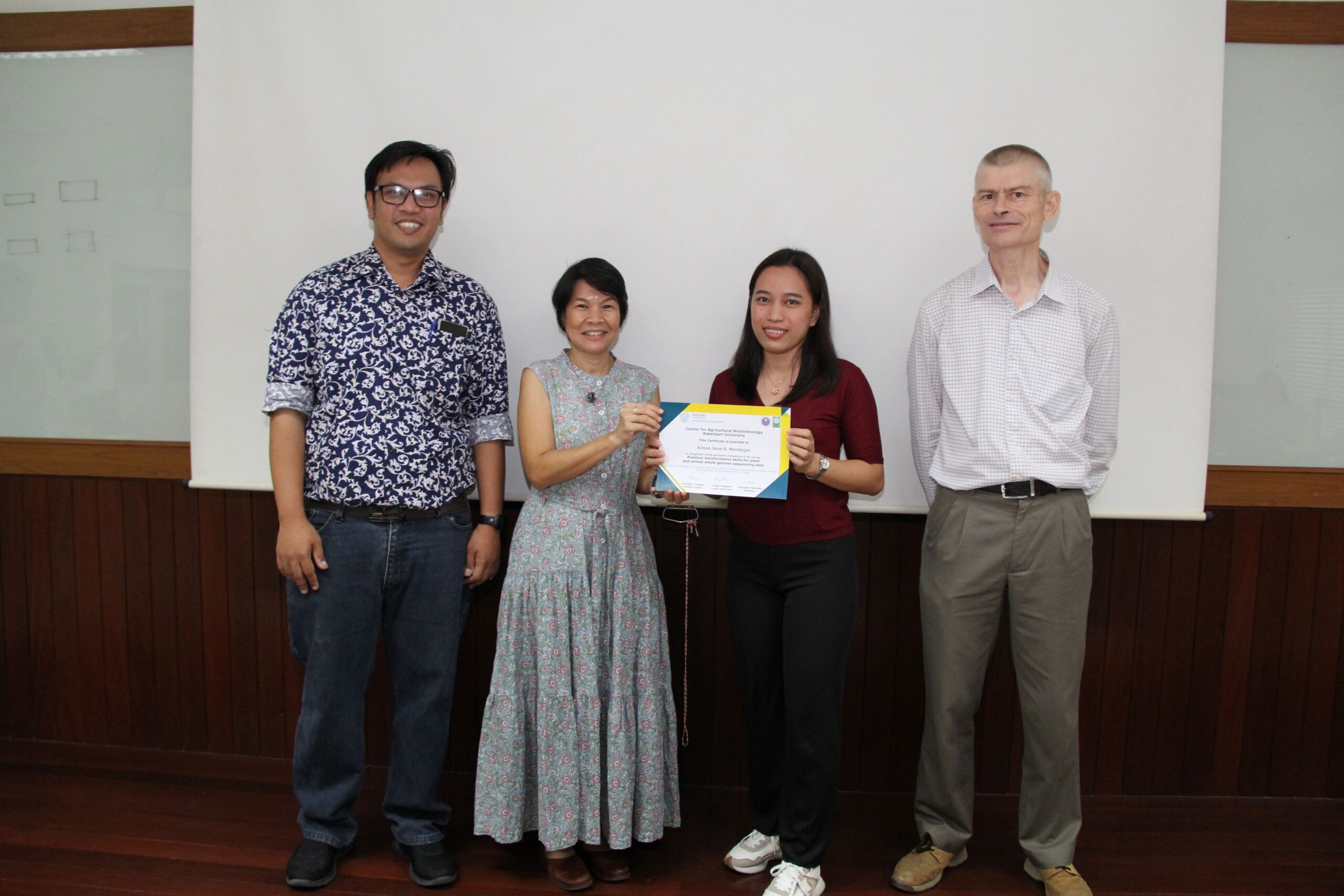
Nakhon Pathom, Thailand – The Bio+Mine Ecological Team, represented by Dr. Mylah Villacorte-Tabelin and Miss Alissa Jane Mondejar from the Mindanao State University – Iligan Institute of Technology, participated in the Practical Bioinformatics Skills for Plant and Animal Whole Genome Sequencing Data Training held at the Center for Agricultural Biotechnology, Kamphaeng Saen Campus of the Kasetsart University in Thailand on August 28 to September 1, 2023.
The primary objective of this five-day training was to equip participants with comprehensive knowledge in bioinformatics workflows, ranging from data acquisition to its application in plant and animal breeding and conservation research. Dr. Ornubol Chomdej, the Director of the Center of Agricultural Biotechnology, opened the workshop with his welcome address. Dr. Hugo Volkaert, one of the lead instructors of the training, introduced Dr. Pumipat Tongyoo and the student assistants from the Kasetsart University. Participants of the workshop came from various universities in the Philippines, Malaysia, Vietnam, and Thailand.
The training commenced with an insightful introduction to the history and application of bioinformatics and sequencing technologies. Participants were engaged in hands-on training sessions, including Linux commands, genome and transcriptome assembly, sequence read quality and manipulation, assembly methods, and assessment of assembly quality. Noteworthy sessions during the workshop included the mapping of reads to reference genomes where the sequence assembly was assessed, compared, and aligned using two software applications, Bowtie2 and Samtools. The aligned sequences then underwent visualization genome annotation.

A significant portion of the workshop was dedicated to the detection of variants resulting from nucleotide substitutions, short insertions, short deletions, and short inversions. Dr. Pumipat Tongyoo and Dr. Hugo Vokaert elaborated on the phasing of single nucleotide polymorphisms (SNPs) and their impact on plant and animal health, drug responses and disease susceptibility.
The final day of the workshop focused on population genetic analysis and the estimation of population size history, providing participants with a comprehensive understanding of these crucial aspects of bioinformatics. The event concluded with the awarding of certificates of participation.


The Bio+Mine team’s participation in this international workshop enhanced their experience in genome sequencing data, which is needed in advancing their goal for rehabilitating the Sto. Niño legacy mine.
